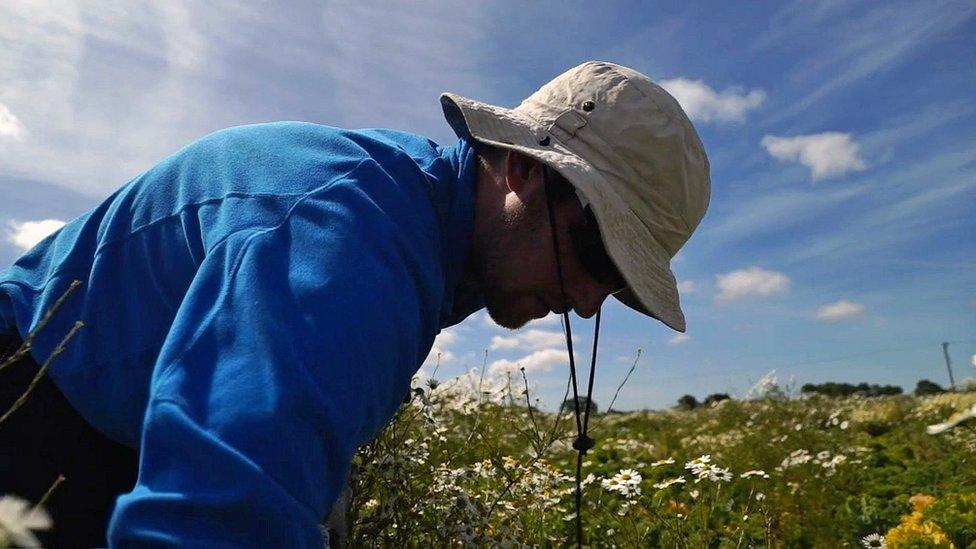Pick-your-own fruit: Are strawberry fields really forever?
- Published
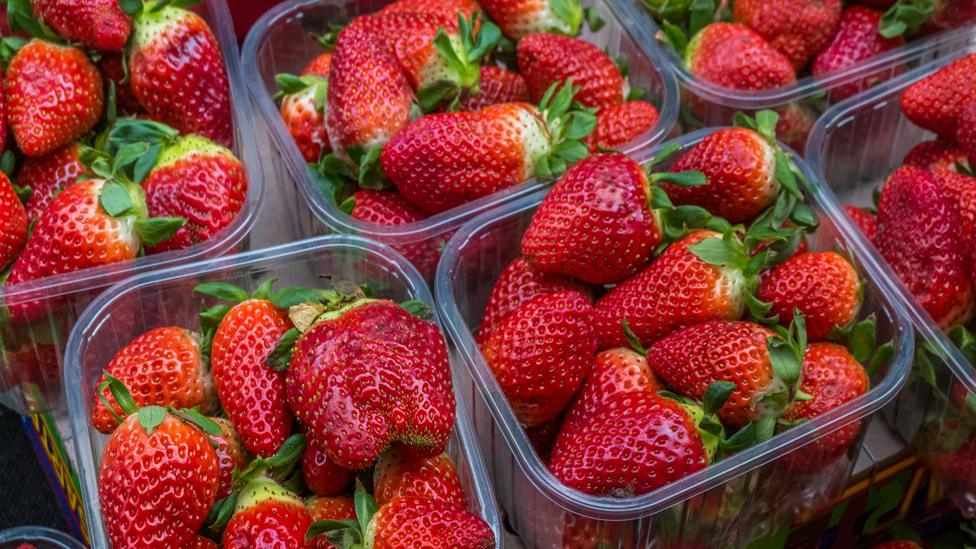
Pick-your-own fruit has traditionally been used in pies and tarts and to make jams, with families now visiting farms for a fun day out
According to The Beatles song - strawberry fields are forever.
But some pick-your-own farmers have grown their last fruit, blaming a whole crop of problems.
Challenges range from birds getting to it before pickers and bad weather, not to mention cheaper produce in the supermarket.
Much-loved sites at Hendrewennol, Vale of Glamorgan and Llanvihangel Crucorney, Monmouthshire, are two of those that have not opened this year.
But others are thriving - including a 160-year-old Wrexham patch, where pickers once got involved in "pitched battles" with locals.
It was in 1860 that Charles Bellis first planted fruit in his garden in Holt - and started attracting the "strawberry dodgers", explained Lucy Stuchbury of Bellis Brothers.
These became synonymous with the area, escaping drab town surroundings and "dodging" round the country to find summer work.
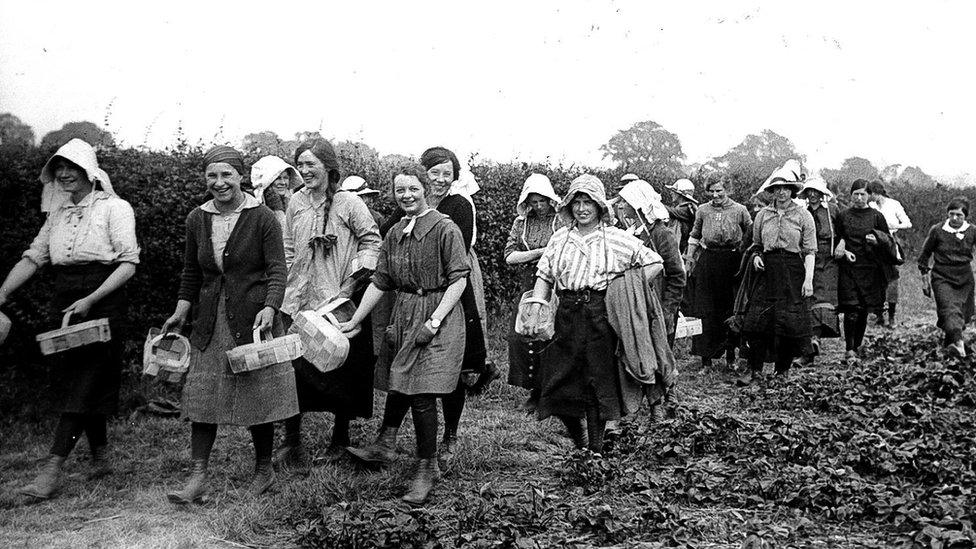
The strawberry dodgers would pick and pack fruit to sell at markets, mainly in the north west of England
While they worked hard in tough conditions packing strawberries, they were not liked by all locals.
A "rowdy element" would "bait" them with "pitched battles" often breaking out on the road into Holt.
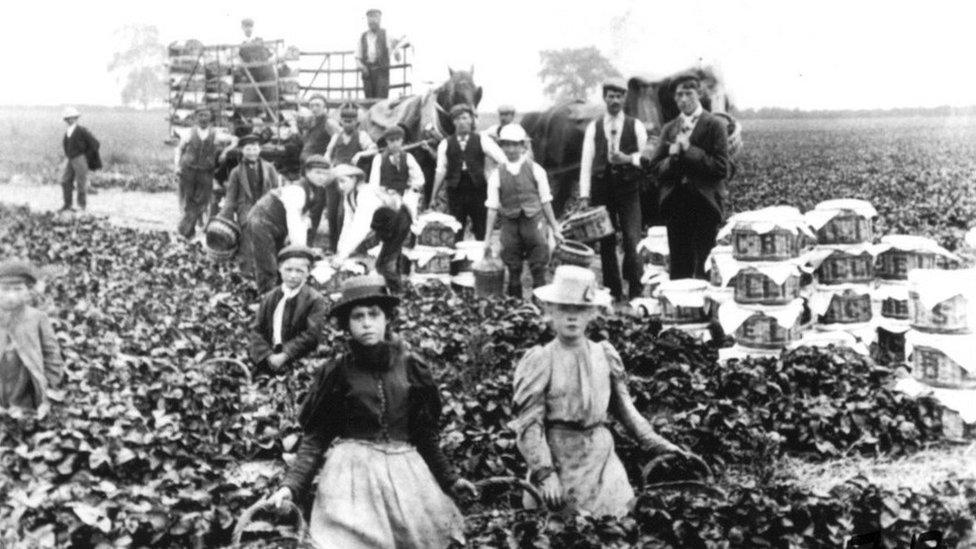
Hundreds of men and women from the cities would converge on Holt in the summer, often with their children
Things are calmer now and in 1965, the fields were opened to the public.
As well as a maize maze, pumpkins, rhubarb and peas are some of the produce added to Charles Bellis's original offering.
But keeping such a venture going is not easy and a "labour of love" according to Lizzy Jones - one that turned her to alcohol, literally.
Maes Sied in the Vale of Clwyd provided "happy summer memories" for 30 years, but when it closed in 2017, there was the issue of what to do with the fruit that continued to bloom.
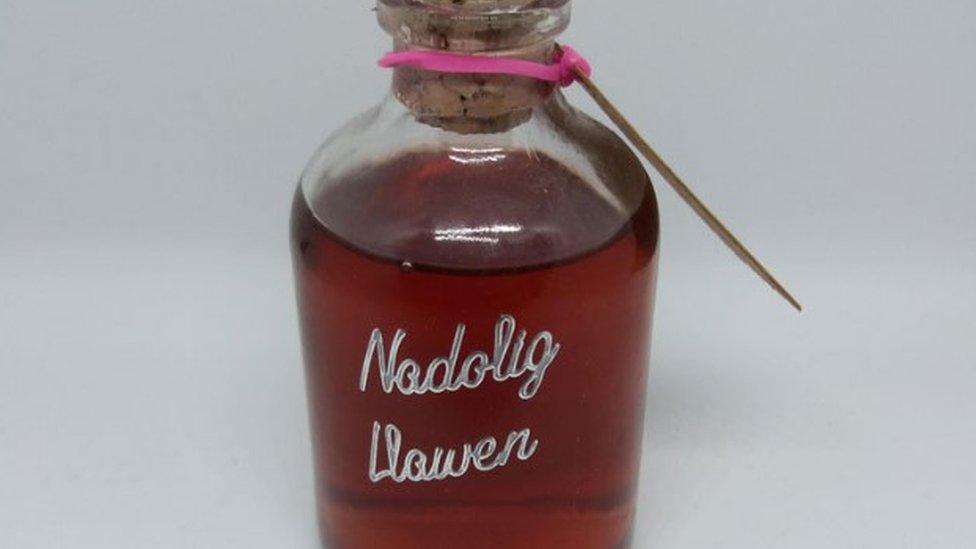
Lizzy Jones would use the apples, blackcurrants, cherries and raspberries to give a bit of Christmas cheer to her friends
"I had started to make fruit liquors for friends for Christmas - the only complaint they had was they were getting too drunk too soon," said Ms Jones.
Her Shlizzy brand was born, which now uses the fruits for gins and vodkas.
The change of direction was not because of a lack of business, with Ms Jones adding: "People came after school or work, from dawn until dusk.
"In the summer holidays, there were always customers. It was mainly locals but others from towns like Chester."
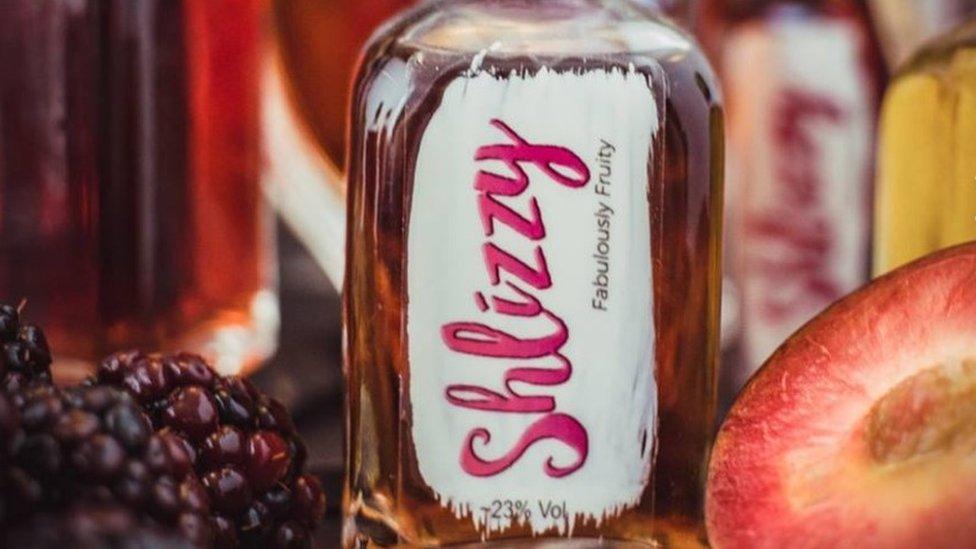
The Shlizzy products are sold as gifts and favours for weddings
When the family moved to the farm in the 1980s, the driving forces were her "green-fingered" dad and taid [grandfather] - with her mother working in the shop.
But when Ms Jones' father died six years ago and she took over with her sister, they realised how difficult the work was.
Outgoings sometimes exceeded incomings and she added: "There were little things, like dad would bring in local kids to help with planting.
"They would need paying."
There was also pruning and putting nets on the cherries to protect them from birds.
But even this effort did not prove enough in 2017.
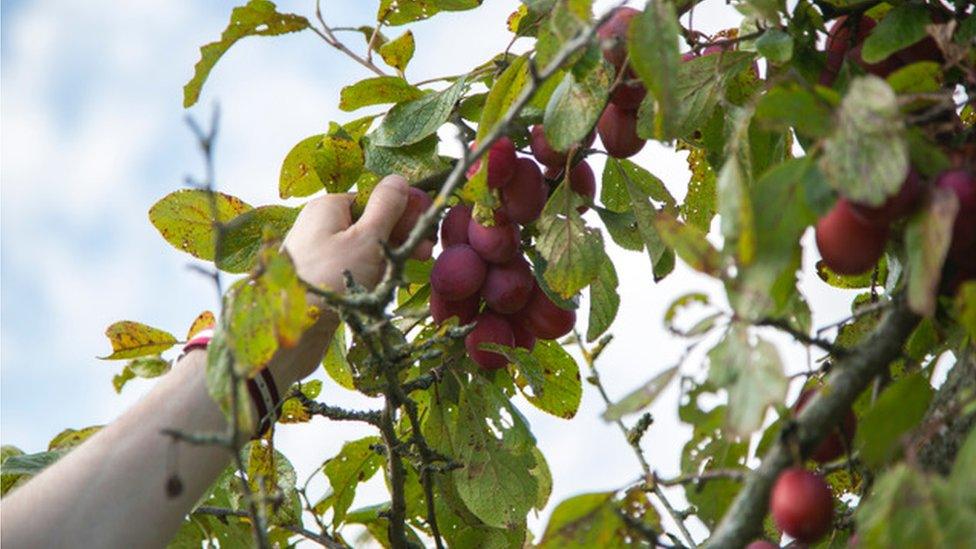
For visitors to pick fruit for a few months in the summer, farmers spend the year tending to thousands of plants and trees
"It then rained solid for a week," she said.
"Cherries split and go mouldy if they are left on the tree, so we lost a crop.
"You can have an amazing crop but then it rains. It's so unpredictable."
They also needed to get fertiliser mixes right so the fruit tasted good and tend to thousands of plants.
Ms Jones added: "If you don't know what you're doing, this can prove expensive.
"And people live different lives now, in more of a rush. They would drive past and say 'we will go tomorrow' but not get round to it.
"And obviously, when strawberries are so cheap in supermarkets, it makes it even more difficult."
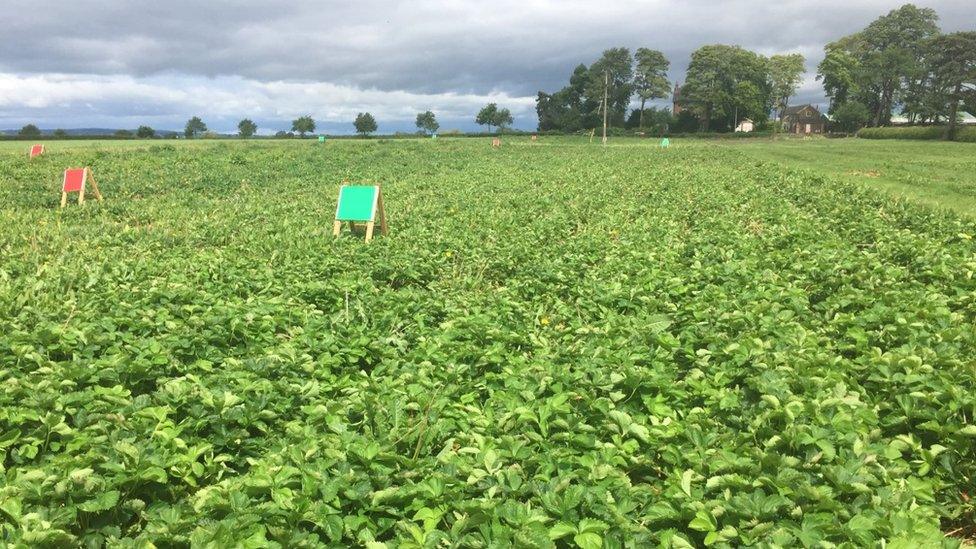
Vast fields of strawberries have been cultivated for the summer picking season in Holt for nearly 160 years
Others have closed - but rather than through a lack of customers, some have blamed too many.
Llanvihangel Crucorney has shut after 55 years, with Claudia Lenza blaming the fact it was "a different model" to others, as she did not own the land.
"Pick-your-owns can do really well," she said.
"It's a different customer now. Before it was people wanting to fill their freezers.
"Now, it's families with young children looking for a fun day out."
Gary Rees called the closure of Brooksgrove Farm, Haverfordwest, this summer "bittersweet".
"It just got so busy, our small farm couldn't cope," he said.
"We decided not to open this year and take stock.
"We are talking to health and safety advisors and the council about what we can do."
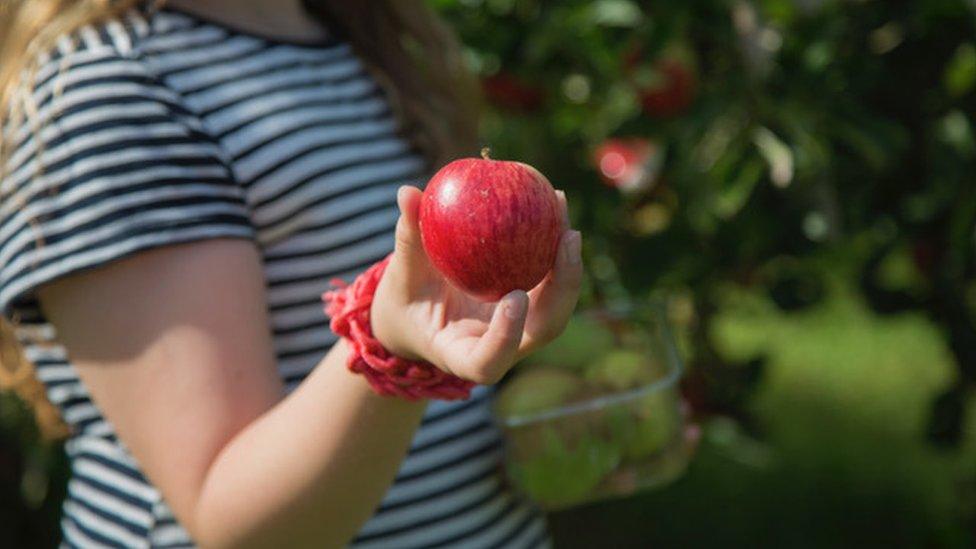
The Hawarden Estate has developed a "visitor experience" around fruit picking, with play activities for children and adults can learn about the growing process
The family first opened their Pembrokeshire coast farm for pick-your-own in 2013.
But it soon became a victim of its own success with "unprecedented numbers" arriving and creating problems on the access route.
Mr Rees said: "It used to be people stocking up with wheelbarrows or ladies making jam.
"Now, it's families looking for an experience."
This is something not lost on Alan Downes of the Hawarden Estate, Deeside.
The pick-your-own strawberry operation expanded to include a farm shop with a "good life experience" in 2008.
Activities and events now pull in 3,000 visitors a week from far and wide.
But others still rely on a small, but dedicated, band of pickers, such as Hooton's Homegrown on Anglesey.
Rosalind Hooton admitted "rain stops play" some days, adding: "People want fruit for jam, there's locals and serious pickers from the Llyn Peninsula who want to fill their freezers."
- Published1 August 2019
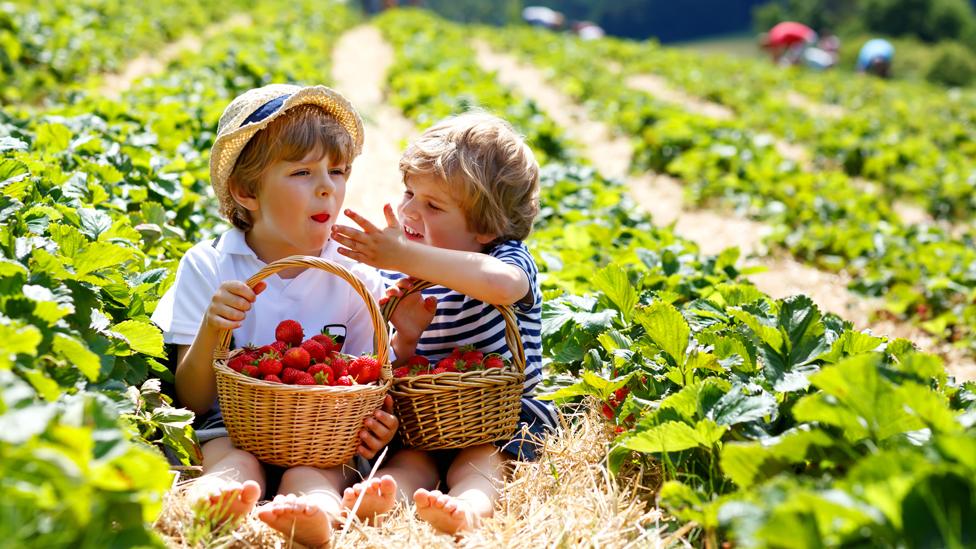
- Published25 July 2019
